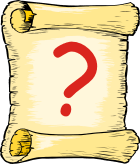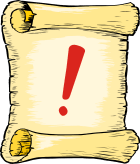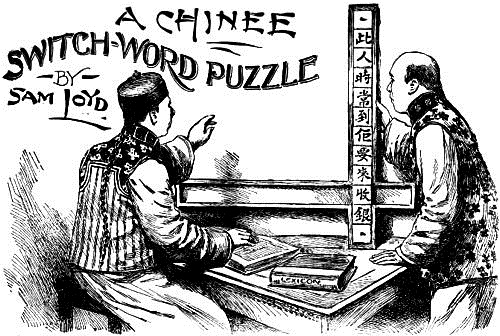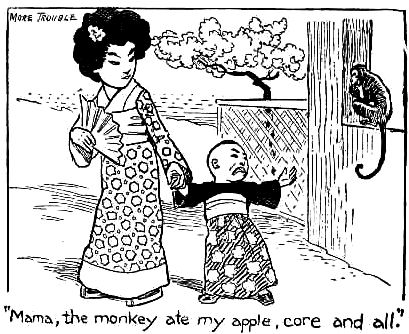



HERE IS AN INTERESTING word puzzle built upon the lines of my old 14-15 puzzle, in that there is supposed to be a letter placed upon each of the twelve moveable blocks, which reading from top downwards spell a correct word. The puzzle is to slide them about in a groove so as to make the word read correctly from the left to the right.
It will be readily understood that any twelve-letter word may be employed to solve the puzzle, but that every word will produce different results, so that some words will be better than others, and it is largely a matter of luck and experiment, to see who can hit upon the best word which will solve the puzzle in the fewest possible number of manipulations.
In this little switch-word puzzle, which was built upon similar lines to the old star puzzle, I took occasion to explain the principle of such puzzles, and, incidentally, to give a good tip regarding the nature and character of the word which, according to my own analysis, would furnish the best key to the Chinese mystery. In the original Chinese switch-word puzzle they use a sentence of twelve words, as in the Chinese language every word is represented by a specific sign word, but in the present Americanized version of the puzzle it was explained that the sentence must be translated or represented by a twelve letter word, one letter on each block—so I introduced the portraits of two interpreters translating the word. The puzzle being to change the position of the block, by sliding them like the old 14-15 puzzle, in the fewest possible moves, so that the word would read correctly from left to right, instead of from top to bottom.
Many clever and ingenious answers were received, giving all manner of twelve-letter words, and varying in from thirteen to twenty-five moves, but few solver caught on to my intimation that there was a peculiarly appropriate word, or who took their “queues” from the Chinese interpreters, hit upon the lucky word “interpreting” which runs it right off the reel in twelve plays without any “drilling,” as the railroad men term it.
2. More Trouble
I will ask our young puzzlists to discover the locality of another matter which seems to be very perplexing. I was reading about the opinions of a returned missionary, for many years a resident in China, who says: “The Boxers really had but little to do with the recent disturbances. The Orientals, as a class, are so extremely ignorant and superstitious that any little incident like the stealing of an apple by a monkey is liable to incite a riot, which, being attributed to the influence of evil demons, is liable to lead to massacres and rebellion. I am certain that more trouble is brewing.”
From the positive manner in which he makes this prediction, it is safe to say that he has inside information about somebody’s monkey having stolen an apple, so I shall ask our juvenile puzzlists to ponder over the descriptive sentence of the picture in hopes of discovering the concealed locality of the prospective rebellion.

More trouble is located at “Corea.”
[Page 176]